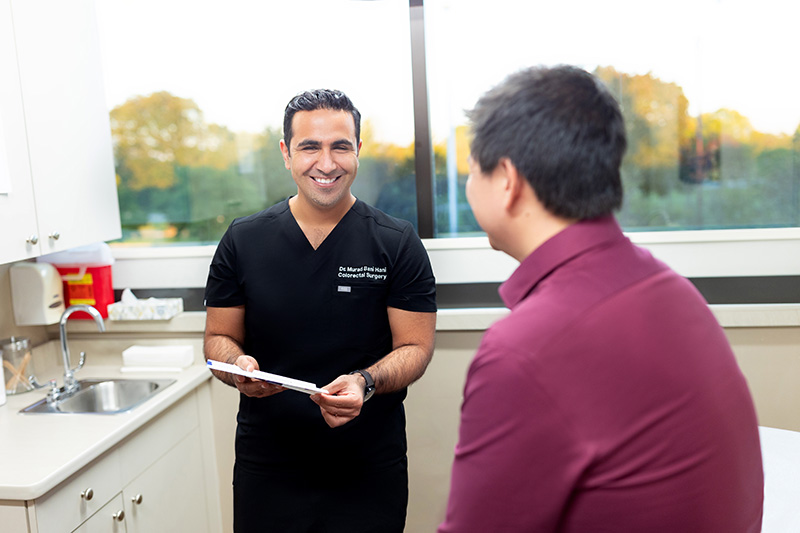Ostomy
Connecting an Organ to Outside the Body
Connecting an Organ to Outside the Body
An ostomy is a surgically created opening that connects an internal organ to the surface of the body. The most common types of ostomies we perform are “colostomy,” which connects the large intestine to the skin, and “ileostomy,” which connects the small intestine to the skin.
An ostomy may be temporary or permanent. A temporary ostomy is created, for example, if the intestinal tract is blocked by disease or scar tissue and can’t be properly prepared for surgery. A temporary ostomy may also be created to allow an operative site to heal without being exposed to the irritation created by the passage of stool. In most instances, a temporary ostomy can be reversed with minimal or no loss of intestinal function.
There are times when a permanent ostomy is necessary, such as when disease, or its treatment, impairs normal intestinal function. A permanent ostomy may also be necessary when the muscles that control the rectum do not work properly or require removal. The most common causes of these conditions are low rectal cancer and inflammatory bowel disease.

Once your ostomy has been created, your surgeon or an ET nurse, a nurse who specializes in ostomy care, will teach you how to apply and wear a pouch called an ostomy appliance. The pouch is made of a special form of plastic that’s held to the body with an adhesive skin barrier. It’s disposable and can be emptied or changed as needed. The pouches are odor-free. Accidents are not common as the system is designed to be very secure.
When you have an ostomy, you do not need to limit your activities. In fact, there are many public figures, entertainers and even professional athletes who have ostomies. (Ostomy, in fact, might be the source of that classic joke, “Doctor, can I play golf after this procedure?” The doctor replies, “Absolutely.” And the patient looks elated. “That’s great! Because I couldn’t play at all before.”)
Most patients with ostomies resume their usual sexual activity. Many, however, worry about what impact their appliance will have on their sexual partner. Support groups are available to help you deal with this. Also, a patient facing a permanent ostomy might want to talk to someone who has already been through the surgery and adjusted to his or her ostomy. Such visits can often be coordinated through our office.
If you are faced with the likelihood of an ostomy, you should be comforted in the knowledge that, most likely, you’ll return to a normal life.